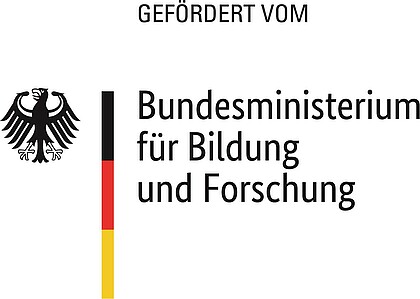The newly launched BMBF accompanying research project "CoCre-HIT" focuses on needs-oriented, digital applications in the healthcare sector.

The accompanying research project "CoCre-HIT", which is being funded by the Federal Ministry of Education and Research with almost EUR 1.5 million, aims to make digital applications in the healthcare sector more compatible with the needs of patients.
The acronym "CoCre-HIT" stands for "Co-Creation and Sustainable Participation in the Development of Hybrid Health IT". It addresses two particular challenges in the development of applications for e-health and telemedicine. On the one hand, "participation" or patient involvement in the development of digital products is currently a major trend. If you take a closer look, however, it often becomes clear that participation formats are very different and vary from a few interviews to actual opportunities to have a say. One of the aims of CoCre-HIT is to systematize and prepare corresponding approaches and methods. On the other hand, the focus is on so-called "hybrid" digital systems, which, due to the current pandemic conditions, appear to be a promising support for communication and coordination in the health sector, but also for the promotion of social participation and well-being for people with health restrictions, especially under the constraints of contact restrictions. In this sense, hybrid means that IT systems should be able to provide good support for both face-to-face and online interactions.
Over the next three years (2021-2024), CoCre-HIT will accompany the development of hybrid health IT in seven technology development projects funded by the BMBF and support and accompany the projects in the application of co-creative and participatory methods.
In CoCre-HIT, research and implementation partners from relevant fields work together at the interface between participation-oriented technology, health and ageing research:
The starting signal was given in mid-November with a joint meeting of all partners, to which Prof. Claudia Müller had invited to Siegen. Due to the current pandemic situation, it was necessary to switch to a hybrid meeting at short notice. The first project meeting thus unintentionally became a test case for a successfully implemented collaboration in a mixed form with both on-site and online participants.
"Health is a very good thing. The Covid 19 pandemic is showing us that. The CoCre-HIT project focuses on how technologies can support people of different ages and in different life situations in such exceptional situations in order to promote health and quality of life. Our goal at the Institute for Health, Ageing, Work and Technology at Zittau/Görlitz University of Applied Sciences is to make the needs of older people and their relatives visible in this context and to ensure that these are taken into account in the development of health IT." Deputy Professor Dr. Cordula Endter
”